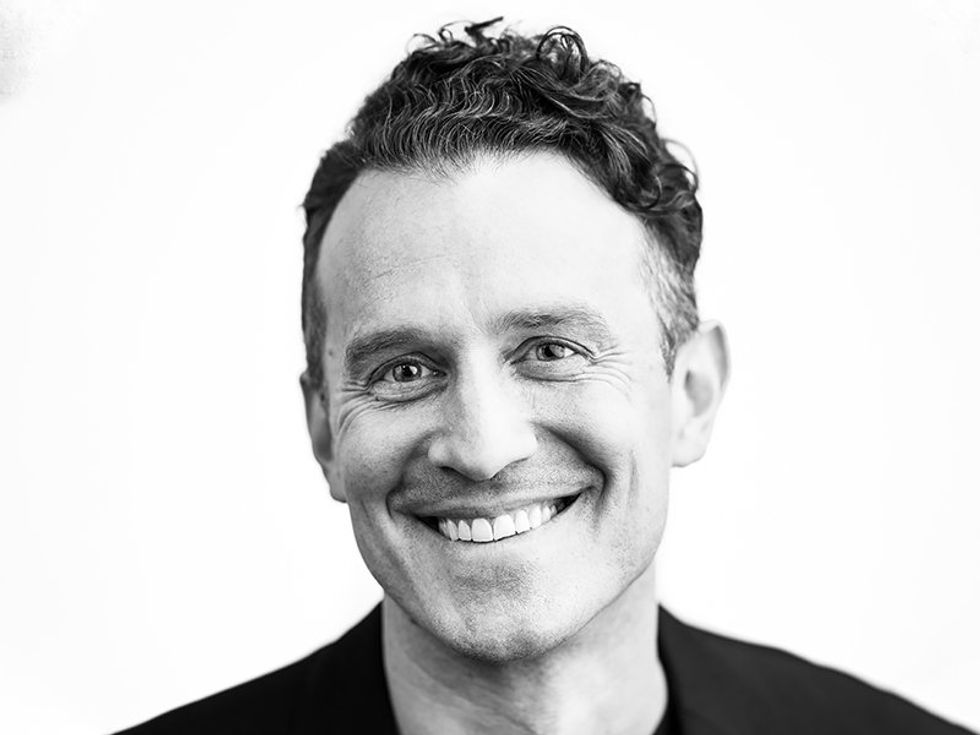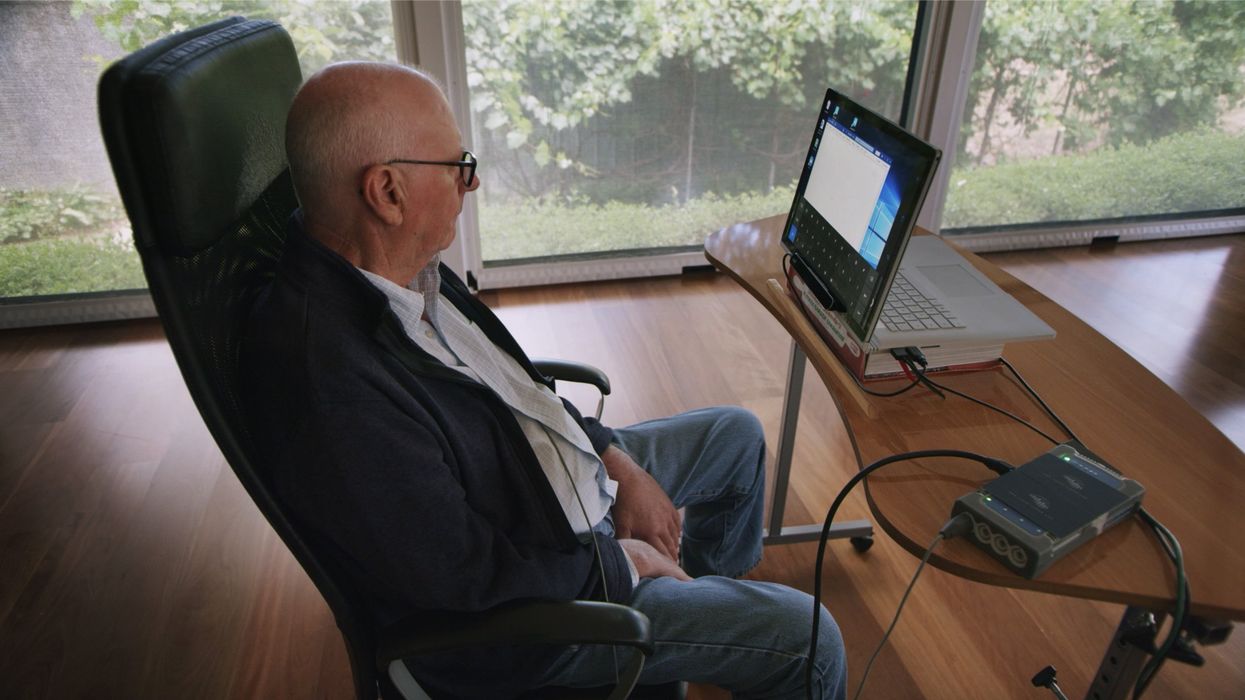In this week's Friday Five, breathing this way may cut down on anxiety, a fasting regimen that could make you sick, this type of job makes men more virile, 3D printed hearts could save your life, and the role of metformin in preventing dementia.
The Friday Five covers five stories in research that you may have missed this week. There are plenty of controversies and troubling ethical issues in science – and we get into many of them in our online magazine – but this news roundup focuses on scientific creativity and progress to give you a therapeutic dose of inspiration headed into the weekend.
Here are the promising studies covered in this week's Friday Five, featuring interviews with Dr. David Spiegel, associate chair of psychiatry and behavioral sciences at Stanford, and Dr. Filip Swirski, professor of medicine and cardiology at the Icahn School of Medicine at Mount Sinai.
Listen on Apple | Listen on Spotify | Listen on Stitcher | Listen on Amazon | Listen on Google
Here are the promising studies covered in this week's Friday Five, featuring interviews with Dr. David Spiegel, associate chair of psychiatry and behavioral sciences at Stanford, and Dr. Filip Swirski, professor of medicine and cardiology at the Icahn School of Medicine at Mount Sinai.
- Breathing this way cuts down on anxiety*
- Could your fasting regimen make you sick?
- This type of job makes men more virile
- 3D printed hearts could save your life
- Yet another potential benefit of metformin
* This video with Dr. Andrew Huberman of Stanford shows exactly how to do the breathing practice.
This podcast originally aired on March 3, 2023.
How to Use Thoughts to Control Computers with Dr. Tom Oxley
Leaps.org talks with Dr. Tom Oxley, founding CEO of Synchron, a company that's taking a unique - and less invasive - approach to "brain-computer interfaces" for patients with ALS and other mobility challenges.
Tom Oxley is building what he calls a “natural highway into the brain” that lets people use their minds to control their phones and computers. The device, called the Stentrode, could improve the lives of hundreds of thousands of people living with spinal cord paralysis, ALS and other neurodegenerative diseases.
Leaps.org talked with Dr. Oxley for today’s podcast. A fascinating thing about the Stentrode is that it works very differently from other “brain computer interfaces” you may be familiar with, like Elon Musk’s Neuralink. Some BCIs are implanted by surgeons directly into a person’s brain, but the Stentrode is much less invasive. Dr. Oxley’s company, Synchron, opts for a “natural” approach, using stents in blood vessels to access the brain. This offers some major advantages to the handful of people who’ve already started to use the Stentrode.
The audio improves about 10 minutes into the episode. (There was a minor headset issue early on, but everything is audible throughout.) Dr. Oxley’s work creates game-changing opportunities for patients desperate for new options. His take on where we're headed with BCIs is must listening for anyone who cares about the future of health and technology.
Listen on Apple | Listen on Spotify | Listen on Stitcher | Listen on Amazon | Listen on Google
In our conversation, Dr. Oxley talks about “Bluetooth brain”; the critical role of AI in the present and future of BCIs; how BCIs compare to voice command technology; regulatory frameworks for revolutionary technologies; specific people with paralysis who’ve been able to regain some independence thanks to the Stentrode; what it means to be a neurointerventionist; how to scale BCIs for more people to use them; the risks of BCIs malfunctioning; organic implants; and how BCIs help us understand the brain, among other topics.
Dr. Oxley received his PhD in neuro engineering from the University of Melbourne in Australia. He is the founding CEO of Synchron and an associate professor and the head of the vascular bionics laboratory at the University of Melbourne. He’s also a clinical instructor in the Deepartment of Neurosurgery at Mount Sinai Hospital. Dr. Oxley has completed more than 1,600 endovascular neurosurgical procedures on patients, including people with aneurysms and strokes, and has authored over 100 peer reviewed articles.
Links:
Synchron website - https://synchron.com/
Assessment of Safety of a Fully Implanted Endovascular Brain-Computer Interface for Severe Paralysis in 4 Patients (paper co-authored by Tom Oxley) - https://jamanetwork.com/journals/jamaneurology/art...
More research related to Synchron's work - https://synchron.com/research
Tom Oxley on LinkedIn - https://www.linkedin.com/in/tomoxl
Tom Oxley on Twitter - https://twitter.com/tomoxl?lang=en
Tom Oxley TED - https://www.ted.com/talks/tom_oxley_a_brain_implant_that_turns_your_thoughts_into_text?language=en
Tom Oxley website - https://tomoxl.com/
Novel brain implant helps paralyzed woman speak using digital avatar - https://engineering.berkeley.edu/news/2023/08/novel-brain-implant-helps-paralyzed-woman-speak-using-a-digital-avatar/
Edward Chang lab - https://changlab.ucsf.edu/
BCIs convert brain activity into text at 62 words per minute - https://med.stanford.edu/neurosurgery/news/2023/he...
Leaps.org: The Mind-Blowing Promise of Neural Implants - https://leaps.org/the-mind-blowing-promise-of-neural-implants/

Tom Oxley
Embrace the mess: how to choose which scientists to trust
A dozen bioethicists and researchers shared their advice on how to spot the scientists searching for the truth more than money, ego or fame.
It’s no easy task these days for people to pick the scientists they should follow. According to a recent poll by NORC at the University of Chicago, only 39 percent of Americans have a "great deal" of confidence in the scientific community. The finding is similar to Pew research last year showing that 29 percent of Americans have this level of confidence in medical scientists.
Not helping: All the money in science. Just 20 percent of Pew’s survey respondents think scientists are transparent about conflicts of interest with industry. While this issue is common to many fields, the recent gold rush to foot the bill for research on therapies for healthy aging may be contributing to the overall sense of distrust. “There’s a feeling that at some point, the FDA may actually designate aging as a disease,” said Pam Maher, a neuroscientist who studies aging at Salk Institute. “That may be another impetus for a lot of these companies to start up.”
But partnering with companies is an important incentive for researchers across biomedical fields. Many scientists – with and without financial ties and incentives – are honest, transparent and doing important, inspiring work. I asked more than a dozen bioethicists and researchers in aging how to spot the scientists who are searching for the truth more than money, ego or fame.
Avoid Scientists Who Sound Overly Confident in messaging to the public. Some multi-talented scientists are adept at publishing in both top journals and media outlets. They’re great at dropping science without the confusing jargon, in ways the public can enjoy and learn from.
But do they talk in simple soundbites, painting scientific debates in pastels or black and white when colleagues use shades of gray? Maybe they crave your attention more than knowledge seeking. “When scientists speak in a very unnuanced way, that can be irresponsible,” said Josephine Johnston, a bioethicist at the Hastings Center.
Scientists should avoid exaggerations like “without a doubt” and even “we know” – unless they absolutely do. “I feel like there’s more and more hyperbole and attention seeking…[In aging research,] the loudest voices in the room are the fringe people,” said the biogenerontologist Matt Kaeberlein.
Separate Hype from Passion. Scientists should be, need to be passionate, Johnston explained. In the realm of aging, for example, Leonard Guarente, an MIT biologist and pioneer in the field of aging, told me about his belief that longer lifespans would make for a better world.
Instead of expecting scientists to be lab-dwelling robots, we should welcome their passion. It fuels scientific dedication and creativity. Fields like aging, AI and gene editing inspire the imaginations of the public and scientists alike. That’s not a bad thing.
But it does lay fertile ground for overstatements, such as claims by some that the first 1,000-year-old has already been born. If it sounds like sci-fi, it’s probably sci-fi.
Watch Out for Cult Behavior, some experts told me. Follow scientists who mix it up and engage in debates, said NYU bioethicist Arthur Caplan, not those who hang out only with researchers in the same ideological camp.
Look for whether they’re open to working with colleagues who don’t share their views. Through collaboration, they can resolve conflicting study results and data, said Danica Chen, a biologist at UC Berkeley. We should trust science as long as it doesn’t trust itself.
Messiness is Good. You want to find and follow scientists who’ve published research over the years that does not tell a clean story. “Our goal is to disprove our models,” Kaeberlein said. Scientific findings and views should zig and zag as their careers – and science – progress.
Follow scientists who write and talk publicly about new evidence that’s convinced them to reevaluate their own positions. Who embrace the inherent messiness of science – that’s the hallmark of an honest researcher.
The flipside is a very linear publishing history. Some scientists have a pet theory they’ve managed to support with more and more evidence over time, like a bricklayer gradually, flawlessly building the prettiest house in the neighborhood. Too pretty.
There’s a dark side to this charming simplicity: scientists sometimes try and succeed at engineering the very findings they’re hoping to get, said Charles Brenner, a biochemist at City of Hope National Medical Center.
These scientists “try to prove their model and ignore data that doesn’t fit their model because everybody likes a clean story,” Kaeberlein said. “People want to become famous,” said Samuel Klein, a biologist at Washington University. “So there’s always that bias to try to get positive results.”
Don’t Overvalue Credentials. Just because a scientist works at a top university doesn’t mean they’re completely trustworthy. “The institution means almost nothing,” Kaeberlein said.
Same goes for publishing in top journals, Kaeberlein added. “There’s an incentive structure that favors poor quality science and irreproducible results in high profile journals.”
Traditional proxies for credibility aren’t quite as reliable these days. Shortcuts don’t cut it anymore; you’ve got to scrutinize the actual research the scientist is producing. “You have to look at the literature and try to interpret it for yourself,” said Rafael de Cabo, a scientist at the National Institute on Aging, run by the U.S. National Institutes of Health. Or find journalists you trust to distill this information for you, Klein suggested.
Consider Company Ties. Companies can help scientists bring their research to the public more directly and efficiently than the slower grind of academia, where “the opportunities and challenges weren’t big enough for me,” said Kaeberlein, who left the University of Washington earlier this year.
"It’s generally not universities that can take technology through what we call the valley of death,” Brenner said. “There are rewards associated with taking risks.”
Many scientists are upfront about their financial conflicts of interest – sometimes out of necessity. “At a place like Duke, our conflicts of interest are very closely managed, said Matthew Hirschey, who researchers metabolism at Duke’s Molecular Physiology Institute. “We have to be incredibly explicit about our partnerships.”
But the willingness to disclose conflicts doesn’t necessarily mean the scientist is any less biased. Those conflicts can still affect their views and outcomes of their research, said Johnston, the Hastings bioethicist.
“The proof is in the pudding, and it’s got to be done by people who are not vested in making money off the results,” Klein said. Worth noting: even if scientists eschew companies, they’re almost always financially motivated to get grants for their research.
Bottom line: lots of scientists work for and with companies, and many are highly trustworthy leaders in their fields. But if a scientist is in thick with companies and checks some of the other boxes on this list, their views and research may be compromised.


